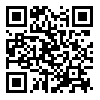Volume 4, Issue 4 (Fall 2024)
J Clin Sport Neuropsychol 2024, 4(4): 0-0 |
Back to browse issues page
Download citation:
BibTeX | RIS | EndNote | Medlars | ProCite | Reference Manager | RefWorks
Send citation to:



BibTeX | RIS | EndNote | Medlars | ProCite | Reference Manager | RefWorks
Send citation to:
Mossayebi F, Sanati Monfared S. The Relationship Between Burnout and Social Support Among Athletes in Tehran. J Clin Sport Neuropsychol 2024; 4 (4) : 6
URL: http://jcsnp.ir/article-1-153-en.html
URL: http://jcsnp.ir/article-1-153-en.html
1- M. Sc. in Motor Behavior, University of Tehran, Tehran, Iran
2- Georgia Institute of Technology, Atlanta, USA
2- Georgia Institute of Technology, Atlanta, USA
Abstract: (578 Views)
Background and Purpose: Athlete burnout is a multidimensional psychological syndrome characterized by emotional and physical exhaustion, reduced sense of accomplishment, and sport devaluation, which can adversely affect athletes’ mental health and performance. Social support, as a key protective factor, plays a significant role in reducing stress and improving athletes’ mental health. This study aimed to investigate the relationship between burnout and social support among athletes in Tehran.
Methods: This research was applied in purpose, quantitative in nature, and correlational in statistical analysis. The study population consisted of professional and semi-professional athletes in Tehran in 2023, engaged in sports such as wrestling, football, volleyball, and athletics. The sample included 100 athletes (50 men and 50 women) selected through purposive sampling. Measurement tools included the Athlete Burnout Measure (Raedeke and Smith, 2001) and the Perceived Available Support in Sport Questionnaire (Freeman et al., 2011). Data were analyzed using SPSS-26. Pearson correlation tests were used to examine the research hypotheses.
Findings: The results revealed a significant negative correlation between social support and athlete burnout. Subscales of emotional support, esteem support, and tangible support were particularly associated with reduced emotional exhaustion and sport devaluation (p<0.05). However, no significant correlation was found between informational social support and athlete burnout (p>0.05).
Conclusion: Emotional, esteem, and tangible social support can significantly reduce athlete burnout among Tehran athletes. Strengthening coach-athlete relationships and improving sports infrastructure can alleviate stress, enhance mental health, and improve athletic performance. These findings underscore the importance of designing targeted psychological interventions and developing support systems in sports environments.
Methods: This research was applied in purpose, quantitative in nature, and correlational in statistical analysis. The study population consisted of professional and semi-professional athletes in Tehran in 2023, engaged in sports such as wrestling, football, volleyball, and athletics. The sample included 100 athletes (50 men and 50 women) selected through purposive sampling. Measurement tools included the Athlete Burnout Measure (Raedeke and Smith, 2001) and the Perceived Available Support in Sport Questionnaire (Freeman et al., 2011). Data were analyzed using SPSS-26. Pearson correlation tests were used to examine the research hypotheses.
Findings: The results revealed a significant negative correlation between social support and athlete burnout. Subscales of emotional support, esteem support, and tangible support were particularly associated with reduced emotional exhaustion and sport devaluation (p<0.05). However, no significant correlation was found between informational social support and athlete burnout (p>0.05).
Conclusion: Emotional, esteem, and tangible social support can significantly reduce athlete burnout among Tehran athletes. Strengthening coach-athlete relationships and improving sports infrastructure can alleviate stress, enhance mental health, and improve athletic performance. These findings underscore the importance of designing targeted psychological interventions and developing support systems in sports environments.
Article number: 6
Type of Study: Research |
Subject:
Sport Psychology
Received: 2024/07/4 | Accepted: 2024/08/19 | Published: 2024/10/1
Received: 2024/07/4 | Accepted: 2024/08/19 | Published: 2024/10/1
| Rights and permissions | |
 |
This work is licensed under a Creative Commons Attribution-NonCommercial 4.0 International License. |





